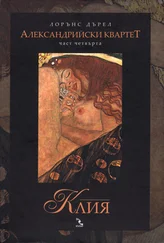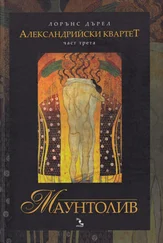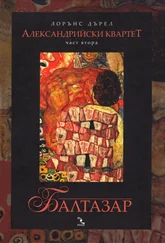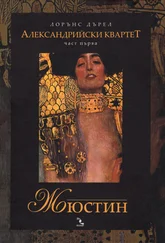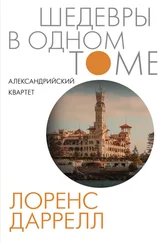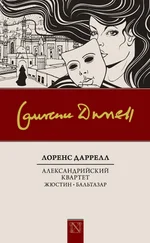Лоренс Даррелл - Prospero's Cell
Здесь есть возможность читать онлайн «Лоренс Даррелл - Prospero's Cell» весь текст электронной книги совершенно бесплатно (целиком полную версию без сокращений). В некоторых случаях можно слушать аудио, скачать через торрент в формате fb2 и присутствует краткое содержание. Жанр: Проза, на английском языке. Описание произведения, (предисловие) а так же отзывы посетителей доступны на портале библиотеки ЛибКат.
- Название:Prospero's Cell
- Автор:
- Жанр:
- Год:неизвестен
- ISBN:нет данных
- Рейтинг книги:4 / 5. Голосов: 2
-
Избранное:Добавить в избранное
- Отзывы:
-
Ваша оценка:
- 80
- 1
- 2
- 3
- 4
- 5
Prospero's Cell: краткое содержание, описание и аннотация
Предлагаем к чтению аннотацию, описание, краткое содержание или предисловие (зависит от того, что написал сам автор книги «Prospero's Cell»). Если вы не нашли необходимую информацию о книге — напишите в комментариях, мы постараемся отыскать её.
Prospero's Cell — читать онлайн бесплатно полную книгу (весь текст) целиком
Ниже представлен текст книги, разбитый по страницам. Система сохранения места последней прочитанной страницы, позволяет с удобством читать онлайн бесплатно книгу «Prospero's Cell», без необходимости каждый раз заново искать на чём Вы остановились. Поставьте закладку, и сможете в любой момент перейти на страницу, на которой закончили чтение.
Интервал:
Закладка:
15.1.38
During the last summer visit to the Count D. we attended a ceremony which furnished the seed for a whole train of arguments about pagan survivals, which have since been incorporated in one of Theodore's many unpublished monographs. The Count was half-way down the avenue of cypress trees when we came upon him, carrying in his hand a beautiful Venetian dish, full of something which only Theodore recognized as Colyva — the offering to the dead. 'You will perhaps walk with me,” said the Count, turning aside after his usual greetings, 'and assist me. I am making a small reverence to a cousin of mine who died two years ago to-day.' Noticing Zarian's hungry eye upon the dish (for our walk had been a long and dusty one) he smiled and said: 'It is a peasant custom still — and descended from who knows what pagan rite.' He removed the lid for us to look at the contents. 'Pomegranate seeds, wheat, pine-nuts, almonds and raisins, all soaked in honey. Here, it really tastes rather nice. Try some.' Together we walked with him through the wood, following the bridle-paths, until we came to the small chapel, surrounded by tall cypresses. The Count undid the heavy iron padlock which secured the door to what appeared to be the family vault. The gloom was intense, and the shadow thrown by the cypresses gave it a greenish radiance. We entered down three earthen steps leading to the concrete floor upon which the uncouth stone tombs stood, primitive in their lack of ornament. 'There is no need for the unearthly hush,' said the Count quietly. 'For us death is very much a part of everything. I am going to put this down here on Alecco's tomb to sustain his soul. Afterwards I shall offer you some more of it at home, my dear Zarian, to sustain your body. Is that not very Greek? We never move far in our metaphysical distinctions from the body itself. There is no incongruity in the idea that what fortifies our physical bowels, will also comfort Alecco's ghostly ones. Or do you think we are guilty of faulty dissociation?' Zarian and Theodore, more at home in the gloom now, potter the length of the vault. While Theodore characteristically examines the moss upon the walls and attempts to recall its medical name, Zarian concentrates upon a tomb in the corner which appears to be empty; the cracked stone lid lies beside it, as if it had fallen off in the struggles of the body to re-enter life. 'Ugly things, these tombs,' says the Count. 'Like the bunkers of a merchant ship. Ah! you are looking at the empty one. It used to belong to my Uncle John, who caused us a lot of trouble. He became a vampire, and so we had him moved to the church behind the hill, where the ecclesiastical authorities could keep an eye on him. You did not know that the vampire exists?'
Walking back to the house across the green grass of the meadow, Theodore and the Count exchange reminiscences of vampiredom. The vampire is still believed in. It is known as a Vrikolax ([Greek]) and is the reward for an exceptionally evil life. In some cases vampires have been reported to have terrorized villages to such an extent that the Church has had to be called in to use its powers of exorcism. 'Uncle John,' says the Count, 'whom I remember as an old grey-whiskered ruffian in jack-boots, appears to have been an exceptionally wicked man. His reappearance was fully borne out by over two hundred witnesses, some of whose children had actually died. It was unpleasant, but they dug him up and put a stake into his heart in the traditional fashion. I felt that it was more politic to move him off the estate into the precincts of a church in order to avoid gossip.'
This theme, sufficiently exciting to wake Zarian from the abstraction into which his weekly Armenian article always throws him, also wakens Theodore in whom there lives a vague Edwardian desire to square applied science with comparative religion. The Count listens with exquisite politeness to a dissertation upon peasant lore. No one could guess that he has already heard it on several occasions. Throughout lunch, which we eat in the shade of the grape-arbour, Theodore unloads his evidence of pagan survivals in Greece — information which Zarian notes down excitedly on his cuff, on the tablecloth, in the battered notebook. Zarian's inveterate note-taking is a charming trait in his character — especially as he has never yet been known to succeed in reading his own notes afterwards, so cramped and illegible a hand has he. Theodore spends hours helping him to decode his own notes every Tuesday when the massive and erudite Armenian article must be begun.
During the afternoon, while the worthies of my Corcyrean pantheon are sleeping in shuttered rooms, I slip down to the house of the peasant family and borrow the Count's placid little mare, which will take me through the vineyards and woods to what is perhaps the loveliest beach in the world. Its name is Myrtiotissa. Lion-gold sand, of the consistency of tapioca, lies smoothly against the white limestone cliff, thrown up in roundels by the force of the sea, which breaks upon a narrow sand-bank some sixty yards clear of the shore. The rocks here are pitted and perforated into natural cisterns, sluggish with weed, and which the receding tide has left full of sea-water and winking fishes; water which the sun has heated to greater than the temperature of human blood. Lowering myself into these natural baths, holding softly to the ladder of many-coloured seaweed, I feel the play of the Ionian, rising and falling about an inch upon the back of my neck. It is like the heartbeat of the world itself. It is no longer a region or an ambience where the conscious or subconscious mind can play its incessant games with itself; but penetrating to a lower level still, the sun numbs the source of ideas itself, and expands slowly into the physical body, spreading along the nerves and bones a gathering darkness, a weight, a power. So that each individual finger-bone, each individual arm and leg, expand to the full measure of their own animal consciousness in this beneficent and dangerous sundarkness. The scalp seems to put forth a drenched thatch of seaweed to mingle with the weeds rising and falling around one's body. One is entangled and suffocated by this sense of physical merging into the elements around one. Blinded by this black sunlight, nothing remains of the known world, save the small sharp toothless kisses of fish on the hanging body — now no longer owned; a providential link with feeling, like the love of women, or the demands of the stomach, which tie one to the world of simple operations. One could die like this and wonder if it was death. The density, the weight and richness of a body without a mind or ghost to trouble it.
Here sometimes I come across Matthew, the lame dynamiter of fish, whose illegal operations in these bays have already cost him the sight of an eye and two fingers of his left hand. I help him to dive for those of his fish which for some mysterious reason sink instead of staying on the surface. On a fire of twigs in the evening we have often watched him grilling his fish with the absorbed air of a specialist, while Zarian stood by with the salt, and the Count with his little bottle of lemon-juice. Matthew chooses the afternoon for his fishing, as the noise of the detonations cannot then dissipate the heavy sleep of the policeman in the little guard house up the hill. He is an admirable companion because he never speaks Clad in patched clothes and the conventional woollen vest, he moves slowly along the rocky galleries above the sea, his prehensile black toes (now swollen and bloated with damp) gripping the rocky ledges. In his right hand he holds the home-made depth-charge, which is made from a cigarette tin and short length of fuse wire. I follow him at a safe range, to allow for any mechanical faults in this piece of machinery.
At about three o'clock he will invariably climb the cliff above the bay, to where the monastery stands in its dazzling white sunlight, and fall asleep in the shadow of the main gate with his silver catch lying in his old felt hat upon the grass.
Читать дальшеИнтервал:
Закладка:
Похожие книги на «Prospero's Cell»
Представляем Вашему вниманию похожие книги на «Prospero's Cell» списком для выбора. Мы отобрали схожую по названию и смыслу литературу в надежде предоставить читателям больше вариантов отыскать новые, интересные, ещё непрочитанные произведения.
Обсуждение, отзывы о книге «Prospero's Cell» и просто собственные мнения читателей. Оставьте ваши комментарии, напишите, что Вы думаете о произведении, его смысле или главных героях. Укажите что конкретно понравилось, а что нет, и почему Вы так считаете.


